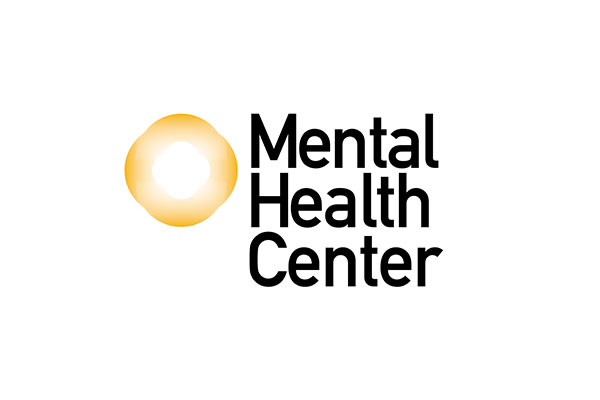Mental Health Center
Mental Health Center supports organizations in developing tools and skills necessary to assist employees facing mental health challenges, depression, grief, and family or health crises that may affect their functioning within the team or productivity.

Employee mental health
Organizations are very creative in developing tools to support employee mental health, but these are usually well-being strategies related to stress reduction and improving working conditions. We go a step further by providing very practical tools to support employees in truly difficult situations related to mental suffering, loss, and health crises that affect their mental, social, and cognitive functioning.
Simple procedures for non-psychologists in psychological first aid – training for managers and employees.
We provide training on procedures for talking to employees in crisis and communication techniques for teams that may also be affected by an individual’s psychological difficulties.
We apply best practices based on American guidelines for Critical Incident Stress Management and principles of Psychological First Aid. We want our clients to feel they have the best solutions for promoting employee mental health and tools to respond to psychologically challenging situations. In this way, we are fostering a culture of inclusivity in the realm of mental health.
Safety, trust, balance
We aim for situations where employees experiencing psychological issues feel safe and can trust that the organization has the best possible approach to supporting them, while maintaining appropriate boundaries between professional and personal life.
Current statistics regarding the increasing scale of depression and other mental health issues necessitate organizations to create systemic solutions for providing psychological support to employees. Taking into account the costs incurred by organizations where these problems arise and are not addressed, as well as the benefits that can be achieved in terms of employee motivation, team integration, and company reputation, more and more organizations are investing in systemic programs promoting mental health. Research indicates that investing in mental health programs yields at least a fourfold return on investment.
Resilient organization, resilient leadership
Thanks to training in psychological support for managers and employees, as well as raising awareness about mental health, employees facing psychological issues will not only feel safe.
Employees who have experienced personal losses or are going through difficulties in their private lives can recover more quickly with the appropriate support from managers, psychological support from their team, or other organizational support tools. This can help them avoid presenteeism or long-term sick leave. We ensure that while providing support to an employee in crisis, we maintain a balance between the needs of the employee and the needs of the team and organization.
Mental health is a broad concept encompassing our ability to cope with challenges, set and achieve goals. A person in crisis, whether caused by illness or a difficult life event, may not maintain full cognitive and social functioning because they are temporarily weakened by the situation affecting their capabilities. In cases of somatic illness, it seems indisputable that we help employees recover – medical leave, rehabilitation, and team support upon return to work are seen as standard practices. When it comes to mental health issues, there still persists a taboo.
Taking care of the team and an employee in crisis builds long-term relationships between the manager and the team, and also provides an opportunity to build the employees’ psychological resilience. We strive to provide our clients with training packages on building employee resilience, and the project itself on managing psychological crises is an element of fostering resilient leadership.
When expert help is needed – interventions in organizations
At Mental Health Center, we address difficult topics such as health or life loss, divorce, depression, and employees’ mental illness, often overlooked or disregarded due to feelings of helplessness, shame, and lack of knowledge on how to provide optimal psychological support.
Mental Health Center helps organizations prepare for difficult situations that are often taboo, thereby supporting the development of psychologically resilient organizations. The procedures we prepare take into account that certain situations can be psychologically burdensome for both the manager, the team, and the suffering employee. Suicide of an employee, death of a child, miscarriage, sexual assault, domestic violence, psychosis—these are situations where long-term support is needed, and it’s crucial to prepare managers and teams for them. In such situations, we have a team of experts who can provide crisis intervention directly with the client, or employees can access Mental Health Helpline for support.
We help managers master the skills to support employees using the best known practices in the field. We teach teams how to support a colleague in crisis peer-to-peer, ensuring they do not violate their own boundaries and provide as much support as is both possible and genuinely needed. Finally, we offer individual support to employees experiencing difficulties through psychological first aid, counseling, and if necessary, psychotherapy via Mental Health Helpline.
What do employees need in a mental crisis
Employee mental health is still a challenging topic. We see that often in organizations, not only are there no procedures to help employees in psychological crises, but there is also a widespread belief that this issue does not concern us. In such environments, it’s difficult to find support from managers or teams because the topic is not addressed, and managers often prefer not to acknowledge the problem because they feel ill-equipped to support the employee.
Audits regarding employees’ psychological issues and psychologically challenging situations that managers typically face often reveal that problems exist. Despite the lack of procedures for difficult situations, managers must cope, sometimes independently and sometimes with the support of HR business partners. This assistance is often well-organized, but sometimes leaves a sense of dissatisfaction and doubts about whether we acted well, or if more could have been done. Managers burdened with such feelings may experience professional burnout more quickly. Therefore, our substantive support in building psychological support protocols is also a measure to prevent professional burnout.
Based on focus groups, surveys, questionnaires, and psychological tests, we examine priorities, initial attitudes of employees and managers towards mental health issues, as well as the level of openness and trust towards managers in this regard. A needs assessment can be comprehensive, including the current level of employee stress, the level and risk factors of burnout, experience, and methods employed for problem-solving. Based on this, we build an action plan that depends on the initial level of openness and existing supportive projects within the organization. It is advisable to start with eye-opening sessions, gradually opening up employees and managers to the topic of mental health, which is different from well-being issues. We aim to create action packages that include lectures, training sessions for managers on crisis conversations, providing peer-to-peer emotional support, and building resilience within the organization.
Mental Health Center supports organizations in identifying mental health needs and signs of psychological crises among employees. We offer audits related to stress levels, burnout, as well as readiness to seek help in psychological crises, the sense of capability to provide support, and analysis of existing procedures and programs for mental health prevention within the organization.
We strongly believe in empowering employees and know that showing teams how to support each other optimally helps regain a sense of agency and also gives deeper meaning to relationships among colleagues. By implementing our conversation protocols and communication tools, we build resilience within teams and support leaders in managing psychologically challenging situations.

